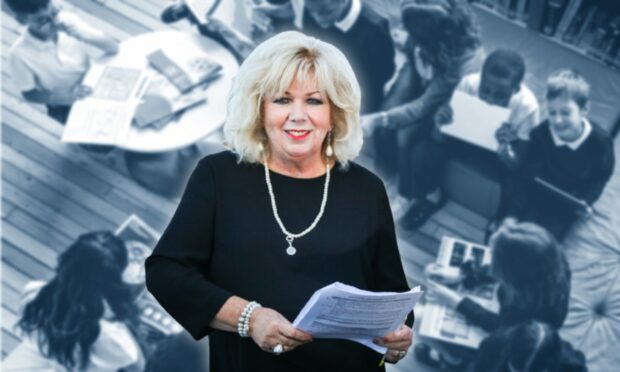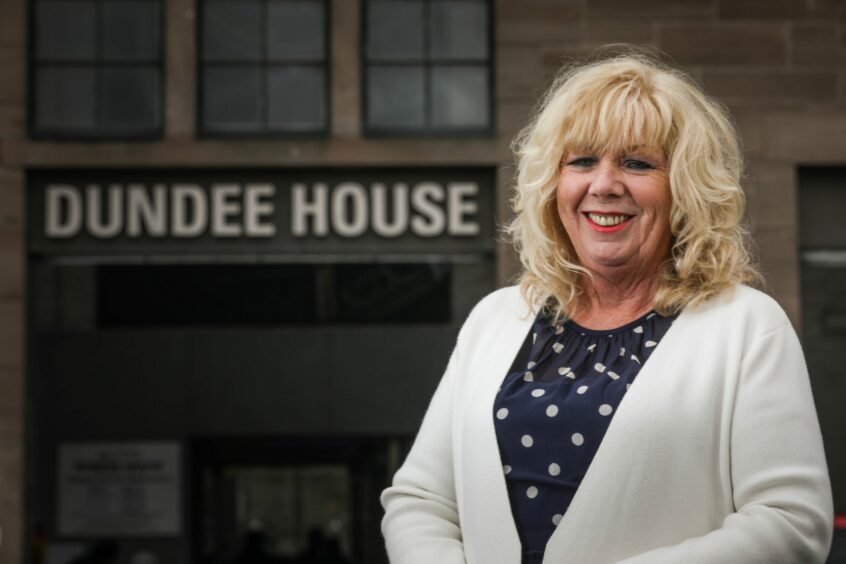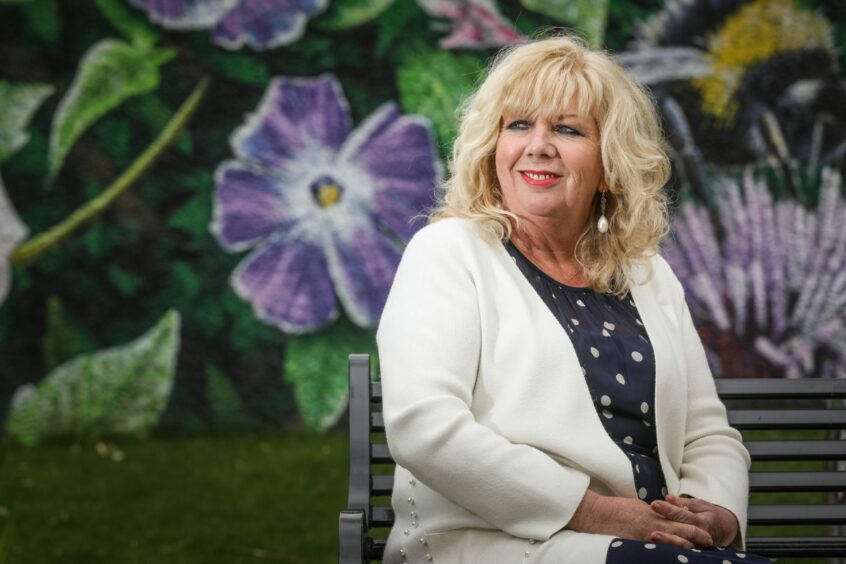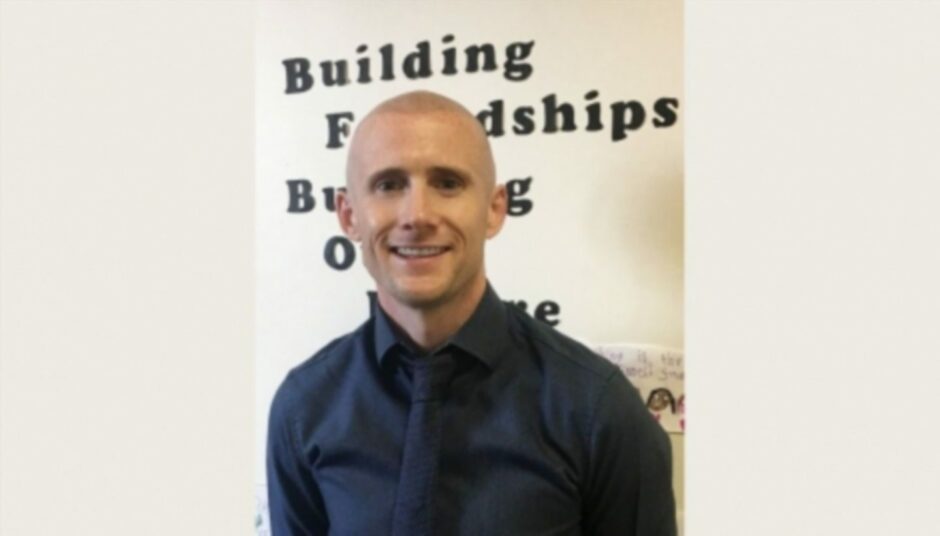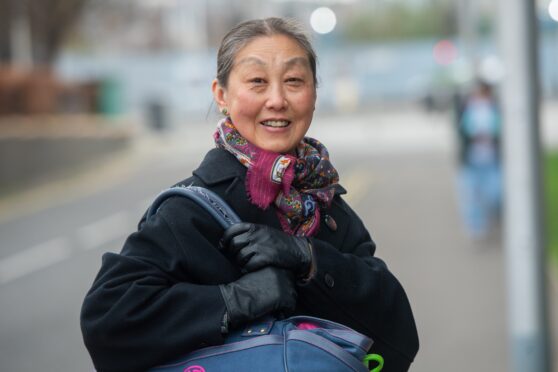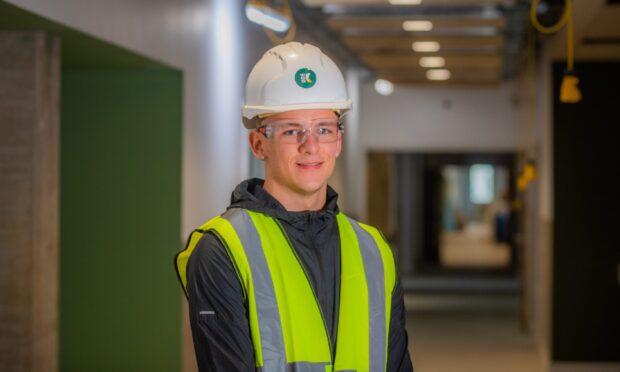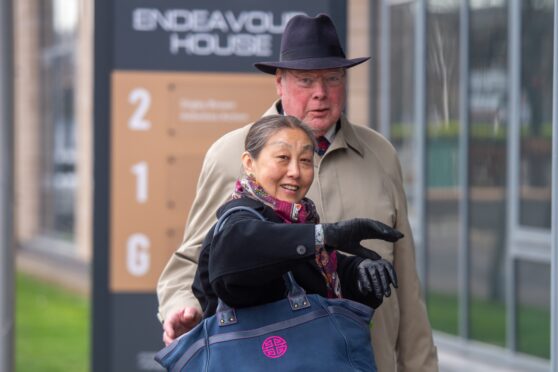As she steps into her new role, Audrey May has revealed her top priorities – collaboration, closing the attainment gap and school attendance.
Audrey took over as executive director of children and families services in Dundee City Council at the start of the year and has already organised a multi-agency conference to take place next month.
Formerly head of education for five years, she says one of the most exciting parts of her new post is working with new colleagues in social work and justice services.
And that as well as learning from their expertise, she is looking forward to improving teamwork across agencies to provide a “wrap around” service for children in the city.
She said: “Over the last 22 months, during the pandemic, we really came together as a service and worked even more closely than we’ve ever done before – taking very much a multi-agency approach to making sure children were safe and we were providing services for them.
“Not just in terms of education, but in looking after vulnerable children. Making sure they were safe from harm, keeping them in our community support centres, setting up protocols for visiting children at home and keeping in touch with families.
“And we couldn’t have done such a good job if we hadn’t done that together as a service across both education and social work, in particular, as well as the other partners in the sector and communities who were also supporting us during that.”
Collaboration and multi-agency approach
Audrey says she is excited to build upon the work which was started over the pandemic – work which has received recognition from external inspectors.
Earlier this month the Care Inspectorate published a report of a joint inspection of services for children and young people at risk of harm in the city.
The report was perceived as very positive and praised a number of areas, including the commitment of staff, collaborative approach and effectiveness of senior leaders’ management.
Building on that, Audrey has already started work around an improvement agenda.
It’s about getting the teams to work more closely together”
Audrey May
She said: “It’s about getting the teams to work more closely together and also to do some joint training and joint planning across our teams to make sure we’re all signed up to the same priorities.
“And the kind of priorities we’re talking about are improved achievement and attainment for our young people as they go through their school career, and we hope that they will have positive and sustained destinations.”
She added there is “already lots of crossover” within the service in relation to targeted children and families and planning together rather than in “separate silos” could reduce that crossover of work.
The attainment gap
Most local authorities in Scotland saw a widening in the attainment gap between pupils living the poorest areas and those in the richest in 2020-21, when compared to 2018-19 (data was not collected 2019-20 due to Covid).
However in Dundee, the gap between pupils from SIMD quintile 1 (most deprived) and SIMD quintile 5 (least deprived) achieving expected levels of attainment remained relatively stable compared to two years ago, as previously reported.
The gap between pupils in the poorest and richest areas of Dundee was 16.7% for reading, 18.7% for writing, 13.9% for listening and talking, 17.3% for numeracy and 20.4% for literacy.
Audrey said: “We’ve done quite a lot of work in the service around understanding our data better and upskilling our colleagues in every level to really analyse our data and understand where we need to improve.
“I think that helped us to be in a strong position to really target interventions for young people and children who are maybe struggling a bit or need support and additional interventions to continue to improve, progress, and to maximise and fulfil their own potential.
“So I believe that during a pandemic, this work came into its own in many ways because we had all of this data and really strong and robust data analysis going on in the system.”
Audrey says this was of huge benefit when Education Scotland reviewed the alternative certification model as a replacement for exams and the education body said the work was “outstanding”.
And that has helped the service stay “on track” with keeping children and young people progressing, despite the challenges of the pandemic.
She added: “I’m delighted to see that we’ve kind of kept the ship steady, if you like.
“And hopefully as we move through recovery and out of the pandemic, we can get back on track as our young people are having less and less disruptions to their learning and education.
“But we can’t pretend that’s not been difficult and challenging for children and young people, teachers, all of our staff and parents.”
‘No room for complacency’
While commenting on the importance of celebrating the progress which has already been made, Audrey says the attainment challenge is journey of continuous improvement.
She said: “Results have been some improvement in some ways, but there’s still a way to go to deliver improvement in all of the aspects that we want to measure.
“We’ve seen significant improvements for the outcomes of some of those targeted groups, however, there’s never any room for complacency. We’re always on a journey of continuous improvement.
“So as my new head of (education) service comes into post in February, I will be asking him to continue to pick up the pace in that journey we’re on and to continue to improve.”
Audrey also commented that grades were only part of the picture of this work, as the service focuses on positive destinations for young people, including further education, work opportunities and employment.
Absences at school
While recognising the different types or reasons for pupil absence from school, and tackling all strands of the issue, Audrey says Covid is a huge obstacle in relation to attendance.
Thousands of pupils miss school every week through illness or self isolation, with the most recent figures showing 246 pupils in Dundee had Covid-19 and a further 460 were absent from school due to self isolation, on January 18.
However Audrey said disruption to education from Covid goes beyond illness and isolation.
She said: “We’ve also found that there’s been a number of families which have been anxious and concerned and have some worries about sending their children back to school after the pandemic.
“So, we’ve had to work very closely with them to encourage them to send children back to school and to reassure them they will be safe and that the best learning will happen while the children are in nursery, primary or secondary.
“We can’t dismiss the fact that there’s lots of anxiety, concern and worry out there for many of our parents, carers and their families and we want to keep working with them to get our children back full time.”
In the meantime, hybrid and blended learning models have been introduced to families who are in need of additional support and the service is working closely with them.
Audrey added: “For some families, the pandemic has had quite a significant impact on how they feel and how they worry.
“Their mental health and their emotional wellbeing has absolutely been impacted negatively by the last 22 months.
“We’re all aware of that and we need to continue to support our families to get the children back into our education establishments, whether that’s the early years and primary or secondary.”
Did you miss: Audrey May takes over as Dundee’s executive director of children and families services
